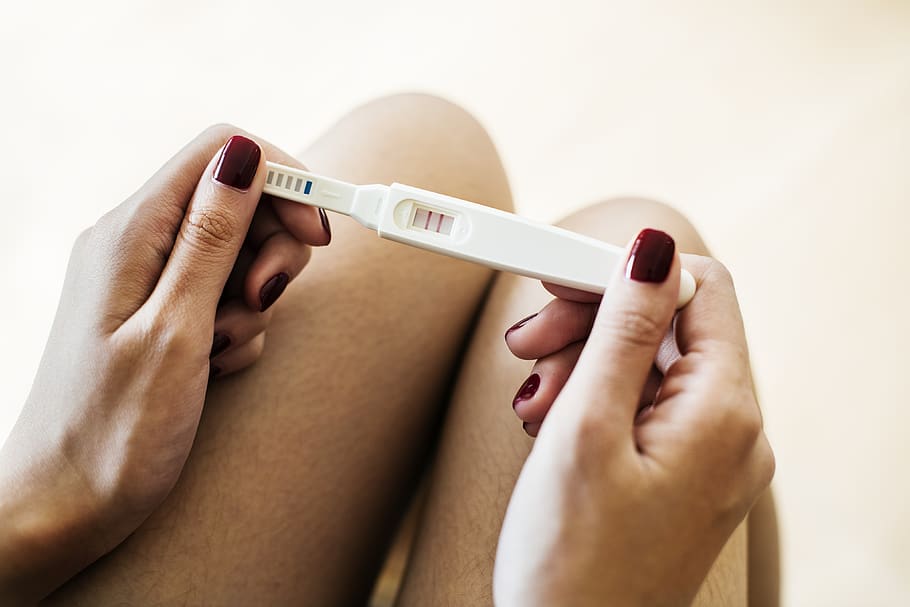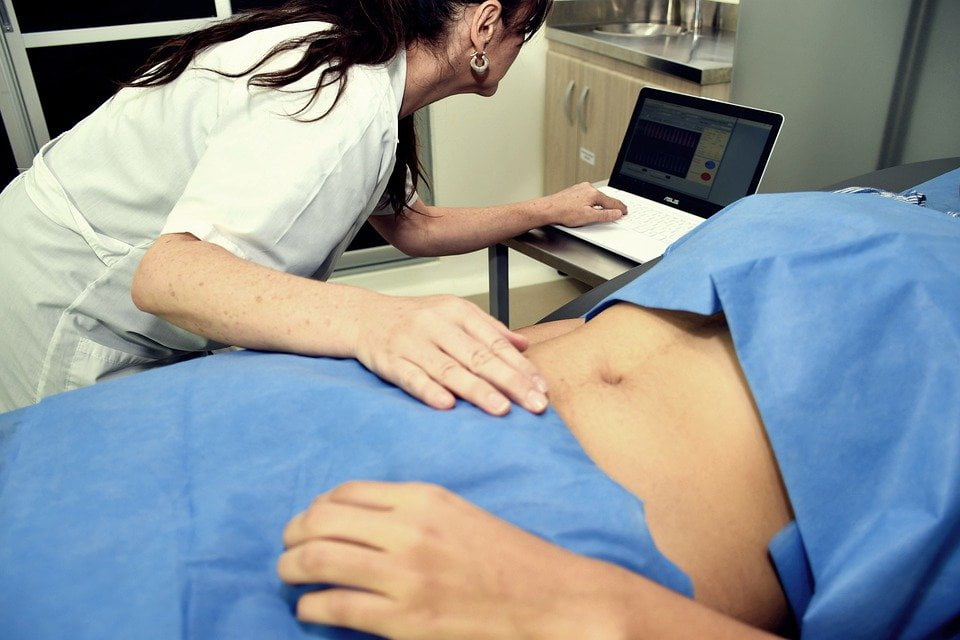Users of social networks are concerned about messages that claim that after vaccination, women’s cycles are disrupted, their breasts become enlarged, and uterine bleeding may begin. Some even suggest that in the future this will all lead to mass infertility. We decided to check whether their concerns were justified.
Similar messages are found in comments on social networks and messengers, they are also distributed sites pseudo-medical conspiracy communities. There are several on the social network Twitter threads, in which women describe how, after vaccination, they encountered unusually heavy discharge, an earlier or later onset of the cycle. Bleeding has also been reported by menopausal women who have diseases, in which menstruation does not occur, using prolonged hormonal contraception, as well as people in the process of masculinizing gender correction and taking hormones. About symptoms similar to the harbingers of menstruation, report even people after removal of the uterus and ovaries. Some even claim, that we are talking “not only about vaccinated people, but about those who have been in contact with vaccinated people, and we are not talking about sexual intercourse (sexual intercourse - editor’s note), just communication.” Other predict more dire consequences: “The coronavirus S-protein subunits have sequences homologous to the human syncytin-1 and syncytin-2 proteins, which poses the threat that antibodies to the S-proteins will also bind syncytin proteins. Syncytins bound by antibodies to S proteins will not be able to perform their functions, which will ultimately lead to sterility.”
The menstrual cycle depends on hormones and consists of of three phases: follicular, ovulatory and luteal. The inner lining of the uterus is called the endometrium. This is a hormonally sensitive tissue that thickens significantly in the last phase of the cycle in preparation for embryo implantation, and if pregnancy does not occur, the endometrium dies and is removed from the uterus during menstruation.
Immune cells play an important role in the formation, maturation and death of the endometrium. Immune cells activated by vaccination affect all body systems, including causing earlier endometrial rejection and, as a consequence, earlier onset of the cycle, believes Dr Victoria Mail, a specialist in reproductive immunology at Imperial College London. With her Agree Bettina Toth from the University of Innsbruck: “Any vaccination causes an immune reaction, because the immune system reacts to the virus or virus particles, even if it is a weakened form. This is not dangerous, we have seen this after vaccination against other infectious diseases, such as influenza.” Alexandra Auvergne, a scientist at the University of Oxford, remindsthat the ovulatory phase can shift due to many factors, including increased body temperature. Violation menstrual cycle due to acute respiratory viral infections and acute respiratory infections, accompanied by a rise in temperature, were noted and before vaccination against coronavirus, and violations can manifest themselves both in an earlier or later onset, and in a change in the volume of discharge: they can become more scarce or more abundant.
Back in 2016, scientists noted a pattern between a viral infection and more painful menstruation. And in 2018 it came out study, which showed that one of the most common side effects in girls who received the human papillomavirus vaccine was just a short-term cycle disruption: the menstruation following vaccination was more abundant and more painful. It is also important to note that in the publications with complaints, the majority of those who reported such a side effect did not indicate in which phase of the cycle the vaccination was carried out. Study 1987 report that the rubella vaccine given during the luteal phase resulted in more side effects. Moreover, there is already data about the relationship between past coronavirus infection and disruptions in the cycle: 28% of respondents experienced untimely menstruation, and 25% noted a change in the volume of discharge.
We also cannot ignore the fact that for some people, vaccination is a source of psychological stress. A year ago, researchers notedthat increased anxiety levels due to coronavirus have caused cycle changes in some women.

However, these studies and observations generally apply only to those patients who are not in menopause or on hormone therapy. It is more difficult to explain why they bleed. Today there are several hypotheses.
The first is associated with nitric oxide, which is additionally formed when the immune system is activated (for example, after vaccination). Nitric oxide helps dilate blood vessels and reduce the number of platelets (cells responsible for blood clotting). In 2000, scientists notedthat nitric oxide is associated with the “initiation and maintenance of menstrual bleeding.”
A second possible explanation could be release mast cells, or mast cells (anti-inflammatory mediators), due to vaccination, which also contribute the onset of menstrual or menstrual-like bleeding.
The third possible factor is work toll-like receptors (cells responsible for the immune response). They play an important role in the recognition of viral particles (for example, the S protein in a vector vaccine) and the development of an immune response. They are along with hormones give a signal to the body about the need for endometrial rejection and the onset of menstruation.
Each of the three hypotheses also applies to menopausal patients, as well as to those taking hormone therapy during a masculinizing gender transition.
However, doctors emphasizethat all these manifestations are harmless and temporary. At the same time, if the bleeding is prolonged and bothers the vaccinated person, it makes sense to consult a doctor, since it may be caused by other diseases.
Cycle disorders and uterine bleeding cannot in any way be associated in unvaccinated people with communication with vaccinated people, including sexual intercourse with a vaccinated partner. In sperm contained cholesterol, blood group antibodies, various acids (including DNA), but not antibodies produced as a result of vaccination. The vaccine is not cheats DNA, and even if it changed, the possible protective effect was manifested only in the offspring, and not in the partner. Also, antibodies cannot be transmitted either through the air or through casual contact with a vaccinated person.
Note post-vaccination breast enlargement started the first in Norway. Scientists explain This is an enlargement of the lymph nodes. Information about such side effects is contained in, among other things, instructions to Sputnik V. Steinar Madsen of the Norwegian Medicines Agency notedthat about 10% of vaccinated people experienced enlarged lymph nodes in the armpits. In Australia, in connection with this, even released recommendation: routine mammography should be performed no earlier than six weeks after vaccination to avoid false cancer diagnoses.
Finally, let's look at the statement about the similarity of the S-protein from the vaccine and syncytin-1 and syncytin-2, because of which users of social networks done the assumption that vaccination is a way to sterilize the population. These concerns are related to the so-called cross immunity. It manifests itself in the fact that, having immunity to one virus, a person may be resistant to some similar (so, presumably, retaining immunity to the SARS and MERS viruses stable to SARS-CoV-2 disease).

Syncytin is a glycoprotein whose defects really lead to disruption of the formation of the placenta and, as a consequence, miscarriage. However, S-protein and syncytin are not similar enough to create the effect of cross-immunity, believes Brent Stockwell, professor at Columbia University. Pfizer spokeswoman Jerica Pitts notesthat "their matching amino acid sequence is too short to result in cross-immunity." Moreover, antibodies to S protein are being developed not only among vaccinated people, but also among those who had been ill, if they had caused cross-immunity to syncytin, then the inability to conceive a child would have been noted by those who had also been ill in the first wave, when no vaccines were created.
Thus, the fears of vaccinated people and panic messages on social networks greatly distort the real picture. Disruptions in the menstrual cycle, changes in the volume of discharge, as well as bleeding in those who are in menopause or in the process of masculinizing gender transition could indeed occur after vaccination; there are many scientific explanations for this. These phenomena are not dangerous and are short-lived. Visible breast enlargement may indeed occur for some time after vaccination due to enlarged axillary lymph nodes. However, all this is not the first step towards total sterilization, since the vaccine does not have any long-term effect and, moreover, does not cause cross-immunity to syncytin, which is responsible for the formation of the placenta.

Half-truth
Read on the topic:
- Do vaccines really change our DNA?
- Is it true that in the United States, 80% of pregnancies after early vaccination end in miscarriage?
If you find a spelling or grammatical error, please let us know by highlighting the error text and clicking Ctrl+Enter.






